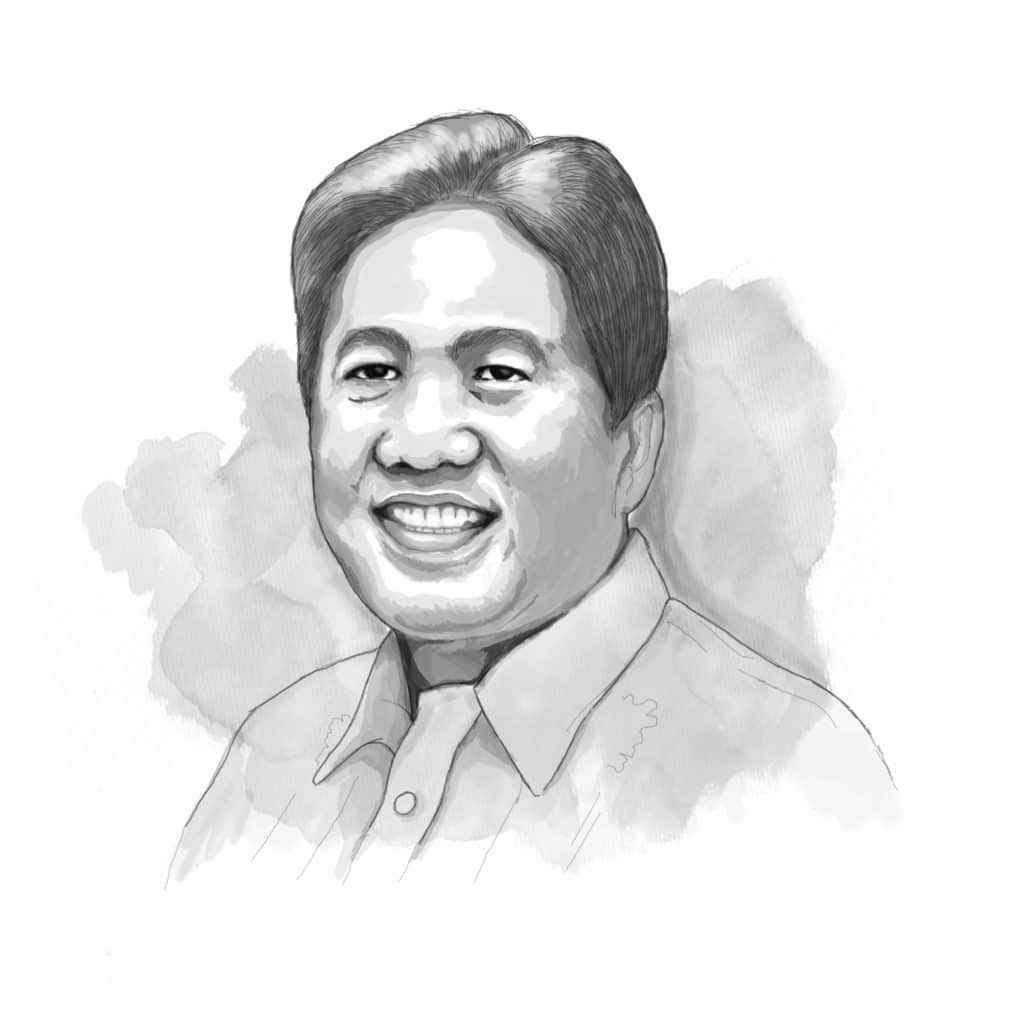ENDEAVOR

Growing up in Barangay Pio del Pilar, Makati, I played with fellow youngsters who went to the Don Bosco campus on Pasong Tamo (now Chino Roces avenue) and Pasay Road (now Arnaiz street) on weekends to play football and basketball and attend catechism classes. They brought home with them goodies such as rice or boxes of wheat that could be useful as a food enhancer.
They wore t-shirts of the Don Bosco Boys Center.
At that time, I could walk, too, from our house to Don Bosco, or take a short jeepney ride then walk the last two blocks. I went to school there starting when I was ten years old and in grade five, eventually finishing high school in 1969. At that time, the entire stretch of Pasay Road from Amorsolo street to EDSA was occupied by homes occupying perimeter lots of San Lorenzo Village, now a barangay covering both San Lorenzo and Legazpi Villages.
Across it was a vast expanse of land. Standing on either Pasong Tamo or Pasay Road, one could clearly see the row of buildings along Ayala Avenue. By the time I graduated from the Asian Institute of Management (AIM) in 1978, Don Bosco’s milieu had been transformed. Mid-rise structures sprouted like mushrooms. A new Greenbelt mall building was built.
While walking along Paseo de Roxas and in Greenbelt, Fr. Rocky Evangelista spotted a bunch of young kids. ‘The rest is history,’ He recalls:
“We started Tuloy in 1993 to rescue street children, and give them a home, direction, and the skills they will need in the real world. We had 12 children then in a 40-square meter room. Over 30 years, Tuloy has served more than 10,000 children in need. The small room is now a village on 4.5 hectares of land in southern Metro Manila. The abandoned and arid fields have metamorphosed into homes, gardens, a school, a soccer field, a chapel, and recently, a culinary arts center for the children. The village is a nurturing environment where they continue to learn and grow, and eventually transform themselves.”
Truly a visionary, Fr. Rocky, who celebrated his 82nd birthday a week ago, recalls the genesis and evolution of Tuloy.
After serving as parish priest, he committed to his Salesian superiors that he would head a project for street children, aided by 10 lay volunteers. Tapping researchers from the University of the Philippines, he came up with a feasibility study for a Streetchildren Village. Tuloy received funding to construct a 3.5-story building within the Don Bosco Makati compound. The new building had complete facilities including dorms, study area, dining room, and kitchen, and was able to accommodate up to 130 children. In 1997, Tulay opened a school able to accommodate a maximum of 230 students.
In 2001, Tuloy moved to a 4.5-hectare Street Children Village in Alabang, Muntinlupa City on land leased from the Department of Social Welfare and Development (DSWD). The long-term lease took effect during the incumbency of then Vice President Gloria Macapagal Arroyo, then serving concurrently as DSWD Secretary.
Fr. Rocky’s concept and vision were founded on unalloyed compassion for the youth. He wrote:
“If we are to serve these children, we must try to answer all their needs in a way befitting their human dignity. Aside from providing for their basic needs and education, our work involves teaching them to unlearn the bad habits and behavior they developed in the streets, healing past hurts, and instilling in them discipline. We need to help them see their goodness by first showing them kindness and compassion.”
This is the essence of Fr. Rocky’s vision:
“Build the right climate, provide the right environment; do things professionally, bring in the committed experts; celebrate victories and reward best efforts; stay for as long as you are happy; be a loving presence among the children.”
More than 30 years hence, Fr. Rocky’s vision and charism has been enlarged and expanded into a countrywide project under the aegis of Tuloy Foundation, Inc., a private non-government, not-for-profit center charitable social welfare agency/organization registered with the Philippine Securities and Exchange Commission in Sept. 23, 1996 and licensed and accredited by the DSWD.
As depicted in Fr. Rocky’s feasibility study:
“The street is home to an estimated one and a half million children in the Philippines, some 250,000 of them in the cities. Left in the streets to survive, they fall prey to the dangers of begging, theft, drugs, exploitation, violence, and even prostitution. Many eventually find themselves behind bars. Some lose their lives.”
I brought groups of students in AIM’s executive education programs to Tuloy in order for them to witness first-hand the full dimensions of servant leadership. The children at Tuloy are enabled to rediscover their innate goodness by experiencing real-life situations that continually challenge them to strive to be better persons.
Tuloy now has a culinary center that has trained young chefs who have since been employed in five-star hotels both here and abroad. They are given opportunities to express themselves in art, dance, song, sports, or practical arts such as gardening. Thanks to generous corporate and individual donors, they are housed in comfortable dormitories and study in airconditioned classrooms and laboratories.
In such a wholesome environment, Tuloy children have imbibed values such as beauty, cleanliness, safety, respect, responsibility, and accountability.
Fr. Rocky’s fellow Rotarians are among the most enthusiastic benefactors of Tuloy. He served as president of the Rotary Club of Makati EDSA before joining the Rotary Club of Alabang. Rotarians from clubs in Districts 3810 and 3830 covering Metro Manila, Cavite, Palawan and Oriental Mindoro are steadfast Tuloy donors and supporters.
“To love another person is to see the face of God," a famous quote from Victor Hugo's novel, Les Misérables, has found resonance in Fr. Rocky’s Tuloy Streetchildren Village.
Fr. Rocky epitomizes the servant leader who leads by example. May his apostolate among the youth continue to flourish!
Comments may be sent to [email protected]